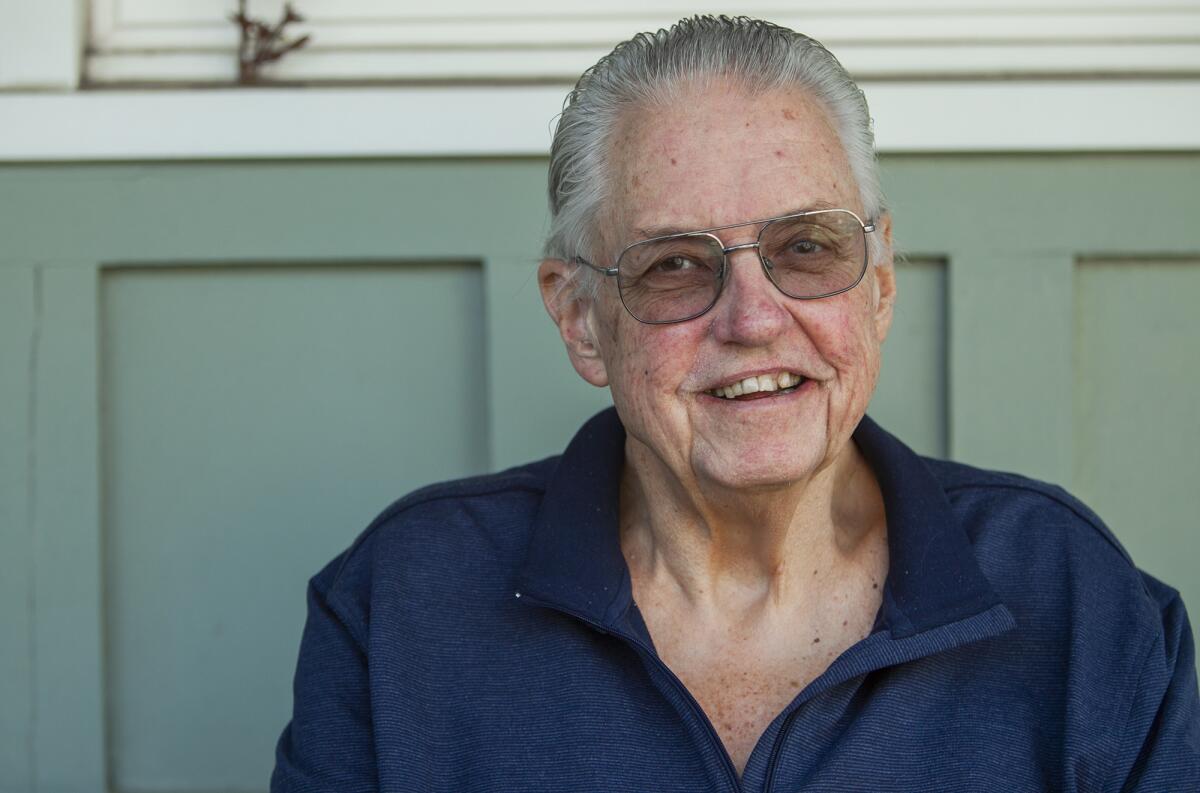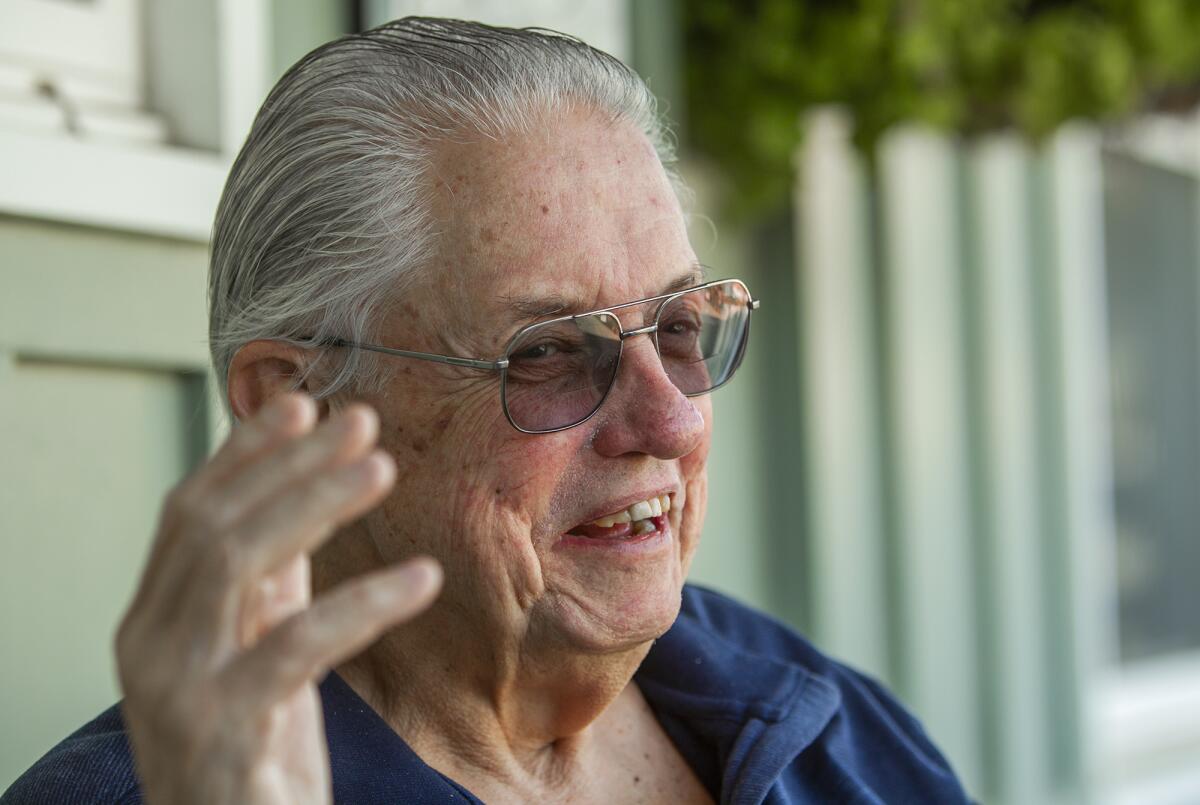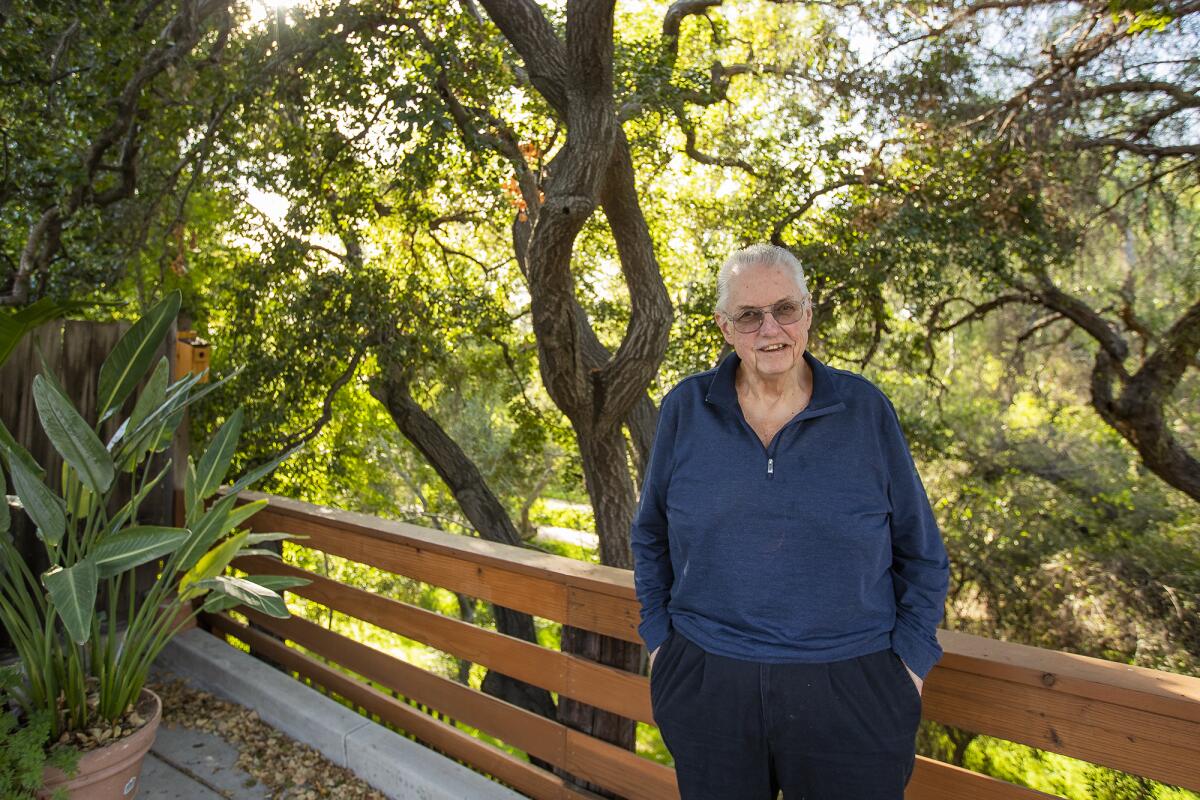After decades of organizing in O.C., this retiree’s new focus is on the homeless in his hometown of Fullerton

As a lifelong community organizer, Mike Clements has helped revitalize poor neighborhoods in Santa Ana, advocate for children with special needs, increase the state’s minimum wage and secure better working conditions for local low-wage workers with Cesar Chavez.
Most recently, he helped influence the approval of a 150-bed homeless shelter in Fullerton, his hometown.
Five decades ago, the 74-year-old decided to forgo his planned ordination as a priest.
“I felt a calling to service,” Clements said. “But I knew that I could accomplish what I wanted to do without becoming a Catholic priest ... I felt there also needed to be much more systemic change.”
At the time, church leadership didn’t appreciate that he spent his free time volunteering with the United Farm Workers of America, the famed labor union led by Chavez, he said.
There was also that whole celibacy thing.
“I wasn’t a big fan of the idea of celibacy,” said Clements, who has been married to his wife Enedina for nearly 50 years.
Clements and Enedina raised four children, two were adopted and one was a foster child.

Clements’ drive to serve the community came from his parents.
His mother regularly told stories of caring for the homeless during the Great Depression. Clements’ father encouraged him to volunteer at the Fairview Developmental Center mental hospital in Costa Mesa for a summer during his youth.
It made a lasting impression on him, and after leaving the seminary, Clements began working as an outreach worker at a Catholic church in Santa Ana and helped found the La Habra-based Gary Center, which provided drug and mental health counseling to at-risk youth, among other services.
He served as director for five years, and it still operates today. The Los Angeles Times recognized Clements for his work with the Gary Center in 1974.
That same year, Clements worked with Chavez to secure better wages and working conditions for employees at a few plant nurseries in Orange County.
Clements said he learned a great deal from the labor advocate.
“Chavez impacted the lives of huge numbers of ordinary people,” Clements said. “He gave them a vision of how life could be much better.”
Clements left the center and in 1976 helped found the Santa Ana Neighborhood Organization, now known as the Orange County Congregation Community Organization.
The original mission of the organization was to empower the low-income immigrant community of Santa Ana through grassroots organizing. Today, it’s a congregation-based county-wide faith group that aims to empower low-income communities of color.

Clements was in charge of the Santa Anita neighborhood on the westside of the city. The neighborhood was known for decades as one of the toughest in Santa Ana, crippled with poverty, crime and gang activity.
“We worked on issues like getting bus transportation because kids were having to walk through gang territory,” Clements said. “We got streets paved, drainage ditches built and worked on housing issues.”
Clements said his work on that neighborhood was one of the highlights of his career. He particularly remembered when they held a party for the neighborhood and a resident spoke to the crowd, declaring that the neighborhood will no longer be known as “the forgotten barrio,” but rather, “the new Santa Anita.”
After about five years with that group, Clements worked about three decades with the national Industrial Areas Foundation. Former President Barack Obama went through the IAF’s community organizing program.
There, he helped lead a statewide campaign to increase the minimum wage, which was raised from $3.35 to $4.25 in 1988. The minimum wage hadn’t increased for seven years prior to that.
Clements left the IAF in 2004 and started the group Justice in Education. For 13 years, the organization advocated for students with special needs in Orange County. When Clements retired, the group’s resources and programs were transferred to the Legal Aid Society of Orange County.
But, Clements has a curious way of retiring. He still works.
Clements helped unite several large Catholic parishes in Fullerton to work on homelessness issues in the city, which hosts about 400 of the county’s 7,000 destitute. With only an emergency winter armory to deal with the county’s spiraling homeless crisis, the city has been in need of a more substantial shelter for years.
The Catholic collaborative educated residents and put pressure on city officials at public meetings for months. A 150-bed shelter was recently backed by the City Council.
The collaborative also was behind the approval of a temporary safe parking program in the city, which will allow for overnight parking for the homeless.
“We were tired of seeing these efforts get shouted down because people didn’t understand,” Clements said.
Clements also played a pivotal role in organizing public support for the Bridges at Kraemer Place Shelter in Anaheim.
“He has a spirit of concern for what he would say the ‘Anawim’— the outcasts, the poor, the least,” said Greg Walgenbach, director of Life, Justice and Peace at the Roman Catholic Diocese in Orange, describing a scriptural term.
Walgenbach said Clements goes behind the scenes to bring his concerns to leaders, whether he’s working with legislators on immigration at the federal level or with city council members on homelessness at the local level.
“He comes in with a real sense of fighting for the underdog,” Walgenbach said.
Clements and his Catholic collaborative are now setting their sights on establishing more permanent supportive housing in Fullerton.
There is no rest in this retiree.
After decades spent caring for the destitute and marginalized, the veteran community organizer sees the flaws in the system — the faults in the gears, the errors in the machine.
With the mechanism so broken, there is no idleness in these hands.
All the latest on Orange County from Orange County.
Get our free TimesOC newsletter.
You may occasionally receive promotional content from the Daily Pilot.




